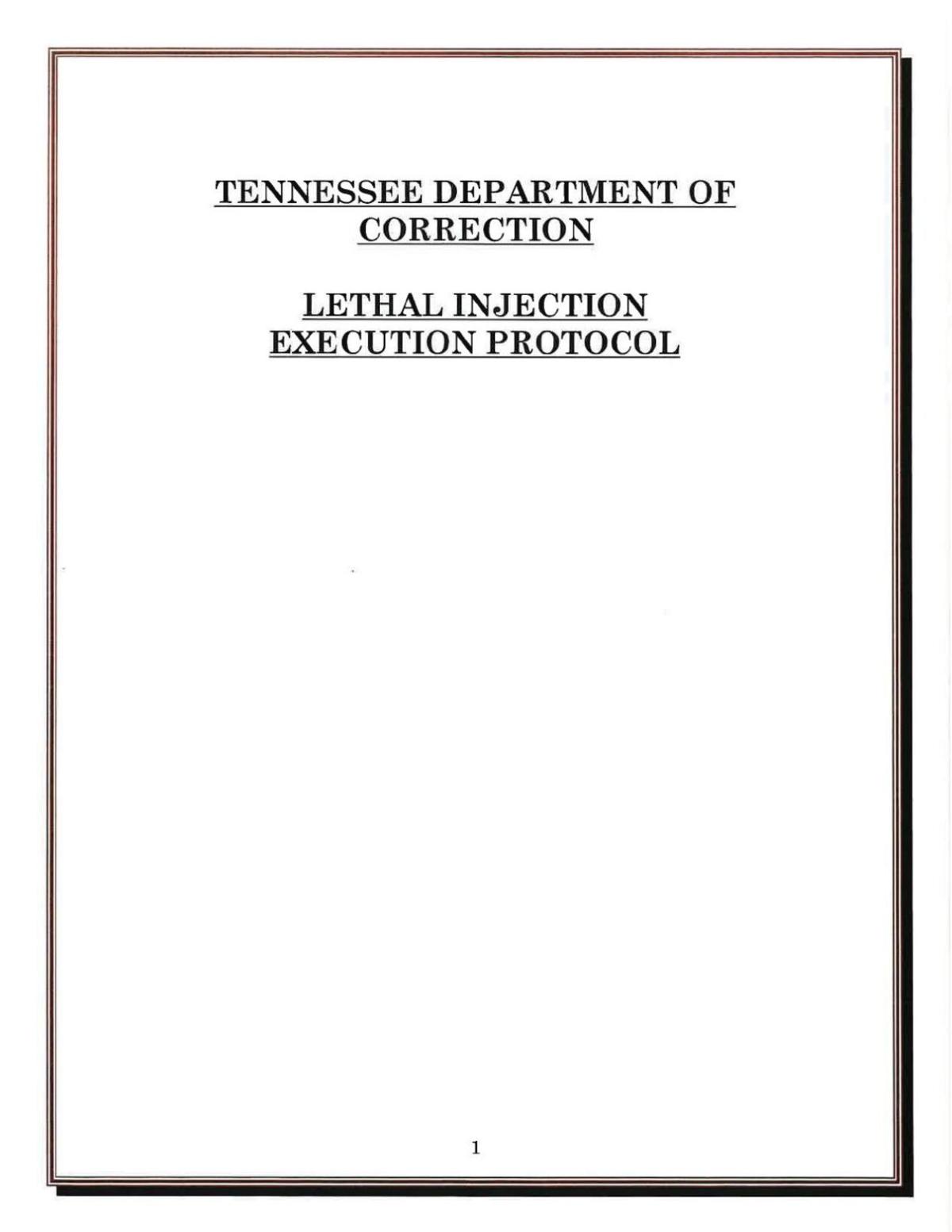Tennessee has not carried out an execution for more than five years — partly by choice, and partly by necessity.
One afternoon in 2022, when it became clear that the Tennessee Department of Correction had violated or otherwise ignored aspects of the state’s 99-page lethal injection protocol, Gov. Bill Lee stopped the scheduled execution of Oscar Smith hours before he was set to die. The ensuing chaos prompted calls from advocates and lawyers for an official moratorium on executions — which the governor eventually imposed — and an official review of the secretive punishment still practiced by just a handful of states and even fewer sovereign nations.
Smith’s abruptly canceled execution in April 2022 pulled back the curtain on the state’s disturbing pattern of lax oversight, procurement struggles and improper screening that has enabled Tennessee executions by lethal injection. At Lee’s request, attorney Ed Stanton III compiled his meta-analysis of TDOC executions into a scathing report that revealed an execution system flawed both by the methods and the people it relies upon.
With new lethal injection protocol in place, state Supreme Court sets new slate beginning in May
In addition to the suffering moral and political credibility for those who, like Lee, stand behind flawed executions, straying from or ignoring protocol could implicate the state in constitutional violations. The state cannot guarantee the proper functioning of expired or tainted chemicals, potentially subjecting victims to torturous and protracted deaths. Lethal injection has the highest incidence of botched executions, supporting what advocates point to as the death penalty’s fundamental contradiction: There is no humane way to kill a human.
The scandal set off a legal and bureaucratic sequence that has produced a new TDOC commissioner, a slimmed-down lethal injection protocol, expanded powers for the state attorney general to advance executions in court, and four new execution dates for this year alone. For more than two years, Stanton’s findings and Lee’s apparent apprehension suspended executions and even appeared to threaten the future of state killings. Previous questions about credibility and legality seem to have expired with time, giving way to a renewed state urgency to carry out death sentences.
The governor appears satisfied with the reduced guidelines recently presented by Frank Strada, the TDOC commissioner brought in by Lee two years ago at least in part to get executions back on track. Strada came from a similar post in Arizona, one of the few states still practicing executions.
The new protocol reads even more quickly than its page count suggests, thanks to liberal redactions throughout its 44 pages. Strada’s work appears deficient when compared with Stanton’s robust criticism of the previous protocol, the logical jumping-off point for someone looking to make improvements. Each execution commands a large staff separated into an escort team, restraint team, special operations team, IV team and physician, led by the warden and commissioner. Among other criteria, participating individuals are selected for their ability to maintain confidentiality.
The state will resume executing people on death row using the single drug pentobarbital
Several major pharmaceutical companies refuse to sell chemicals or equipment for use in executions per corporate policy, and Tennessee has shielded its entire chemical procurement process from public view. The Drug Enforcement Administration has seized Tennessee’s lethal injection chemicals in the past, and difficulty securing such chemicals has created a so-called gray market involving overseas drug manufacturers and compounding pharmacies. The unreliable supply chain may lead to longer storage times, risking potency and further necessitating proper testing and jeopardizing a viable execution. Redactions obscure various other personnel, equipment, roles and steps. But perhaps the biggest knock against transparency comes in the introduction, which empowers the commissioner to alter or ignore aspects of the process if he deems it “necessary” to deviate from protocol.
“ I believe that Gov. Lee takes seriously this grave responsibility — if you want to call it that — of the government,” says Stacy Rector, executive director of Tennesseans for Alternatives to the Death Penalty, a statewide advocacy group. “He has said numerous times that if the state is to have the death penalty, it needs to be done in a way that is transparent and that the public can have confidence in. I do not believe this protocol provides that. I hope that Gov. Lee will take a hard look at what he’s been given and recognize that this is not what he asked for.”
Rector also anticipates that the protocol will prompt litigation, which could potentially stall or postpone executions. A recent decision by the Tennessee Supreme Court allowed the state attorney general to control post-conviction appeals, the legal avenue for individuals on death row to contest their sentences. The ruling empowered AG Jonathan Skrmetti to argue against death penalty appeals and clarify execution dates from the court, which Skrmetti promptly requested.
Multiple sources tell the Scene that they believe Lee, a devout Christian, is personally uncomfortable with bearing responsibility for executions. Lee has indicated in comments to the media that he sees executions, which he refers to as the “law of the land,” as a responsibility of his office. Lee has not spoken publicly about the state’s swift push to schedule killings and did not respond to the Scene’s request for comment.
'Due to an oversight in preparation for lethal injection,' Thursday's planned execution will not move forward as planned
In the past six months, conservative Ohio Gov. Mike DeWine has used reprieves and postponements to keep executions off the state schedule until after his current term ends, citing ongoing uncertainty with the pharmaceutical supply chain. Lee paused executions with the same justification but will presumably oversee at least four more executions before the end of his second term.
Smith now has a new execution date: May 22, 2025. He will die by a single intravenous chemical, pentobarbital, rather than the “three-drug cocktail” mandated by the previous protocol — a combination of sedative midazolam, paralytic vecuronium bromide and potassium chloride, which initiates cardiac arrest. The federal Department of Justice recently abandoned its use of pentobarbital after a review found that the chemical was reasonably suspected to cause “unnecessary pain and suffering.”
Smith will be joined this year by Byron Black, Donald Middlebrooks and Harold Nichols, all of whom received 2025 execution dates at the request of Skrmetti.









